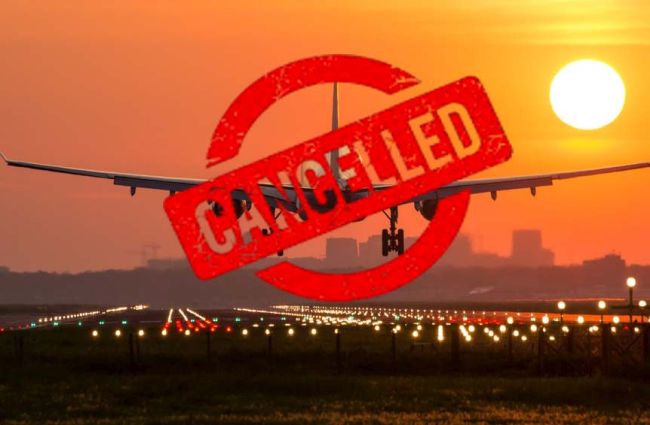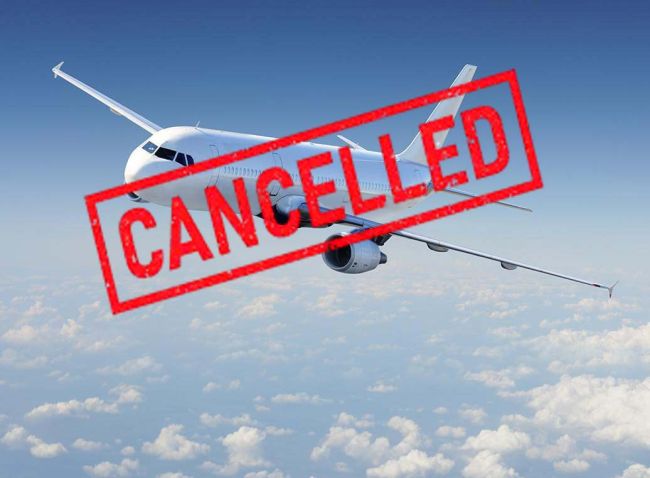The Air Canada flight attendants’ strike has caused major travel disruptions, leaving hundreds of thousands of passengers stranded or forced to change their plans.
As travelers rush to rebook flights and adjust schedules, many are now asking about their air passenger rights. What may come as a surprise is that those flying out of most European countries enjoy stronger protections compared to passengers on domestic Air Canada flights.
If your itinerary has been impacted, here’s a clear breakdown of what you need to know about your Air Canada flight rights, compensation, and travel options during the ongoing strike.
Air Canada Passenger Rights: How to Get a Rebooked Fligh
Air Canada confirmed on Wednesday that passengers impacted by flight cancellations between August 12 and August 23 can request reimbursement if they had to rebook and pay for travel on another airline. Travelers who opted for alternative transportation, such as buses, are also eligible to submit claims.
We have adjusted our policy to ensure stronger customer support,
explained Air Canada spokesperson Peter Fitzpatrick. “Our priority is ensuring that stranded passengers have options to get home.
This revised approach is in line with Canada’s Air Passenger Protection Regulations (APPR), which require airlines to provide travelers affected by labour disruptions with either a cash refund or a rebooked flight.
According to Ian Jack,
spokesperson for the Canadian Automobile Association (CAA), passengers should understand their rights clearly: “For better or for worse, you don’t have to settle for a refund if rebooking works better for your situation.”
What the APPR Says About Your Rights During the Air Canada Strike
Under the Air Passenger Protection Regulations (APPR), if a major airline like Air Canada cannot rebook you on a partner airline within 48 hours of your original departure, it is required to find you a seat on any available airline — including competitors.
If no flights are available from the same airport, the airline must search for departures from a nearby airport and arrange ground transportation to get you there.
Airlines Face Penalties for Non-Compliance
Failure to follow these rules can result in steep fines. In fact, earlier this year the Canadian Transportation Agency (CTA) issued a $204,000 penalty to WestJet for not rebooking passengers during the 2024 WestJet mechanics strike.
Why Some Passengers Are Still Stranded
Despite these regulations, many passengers have faced challenges during the ongoing Air Canada flight attendants strike. The disruption is particularly severe because Air Canada is the largest airline in Canada, and the strike comes right in the middle of the peak summer travel season, leaving fewer alternatives for stranded travelers.
Calls for Stronger Passenger Protections and More Airline Competition Amid Air Canada Strike
With thousands of travelers stranded due to the ongoing Air Canada strike, many are questioning why Ottawa’s plans for stronger air passenger protections remain stalled.
According to Ian Jack, spokesperson for the Canadian Automobile Association (CAA), the delay leaves passengers without much-needed safeguards during one of the most disruptive strikes in recent years.
Consumer advocate Geoff White,
executive director of the Public Interest Advocacy Centre, argues that the lack of alternative flight options reveals a deeper issue: limited competition in Canada’s airline sector.
“The reason so many travelers are stranded right now is because we don’t have enough competition,” White explained. This should act as a wake-up call for the federal government
Back in June, the Competition Bureau of Canada reported that the country’s airline industry is highly concentrated, dominated by just two carriers — Air Canada and WestJet. It urged the government to boost competition by easing restrictions on foreign ownership of Canadian airlines.
Why Passengers Departing from the EU Have Stronger Travel Rights
Under Canada’s Air Passenger Protection Regulations (APPR), airlines are not required to cover hotel stays or incidental expenses if a passenger is stranded at their destination due to a strike.
“Air Canada may choose to assist travelers as a goodwill gesture, but there is no legal requirement to do so,” explained Ian Jack of the Canadian Automobile Association (CAA).
The APPR also does not allow passengers to claim compensation for flight delays or cancellations caused by labour disruptions, as these are considered outside the airline’s control.
However,
travelers booked on Air Canada flights departing from the United Kingdom or European Union countries are entitled to greater protections. Under EU air passenger rights regulations, passengers can claim compensation for flight disruptions and extra travel costs, offering stronger safeguards compared to the APPR.
Air Canada Strike Extends Passenger Uncertainty as EU Rules Offer Stronger Compensation
Air Canada travelers faced yet another day of flight disruptions on Monday after striking flight attendants defied a federal back-to-work order, further delaying the airline’s efforts to resume normal operations.
We’re exhausted — no sleep, constant phone calls, and still no answers,” said a frustrated passenger trying to reach Portugal for her honeymoon.
EU Passenger Rights vs. Canadian Rules
Like Canada’s Air Passenger Protection Regulations (APPR), EU laws guarantee that when airlines cancel flights, passengers are entitled to either a refund or a rebooking. However, the EU goes further: while compensation can be denied for disruptions caused by third-party strikes, an airline cannot escape liability if the strike involves its own staff.
The European Union explicitly states that an internal strike “does not release the airline from its obligation to pay compensation.”
Readmore Free Entry and discounted for everyone this summer. …
How Much Compensation Can Air Canada Passengers Claim?
Affected passengers may file claims under either the APPR or EU regulations. Under EU rules, Air Canada travelers departing from the European Union may be eligible for reimbursement of extra costs such as hotels, plus compensation of up to €600 (≈$965 CAD). Those flying out of the United Kingdom can claim as much as £520 (≈$970 CAD).
Air Canada Strike Highlights Need for More Competition and Stronger Passenger Protections
The ongoing Air Canada strike is a “wake-up call” for stronger competition in Canada’s airline sector, according to Geoff White of the Public Interest Advocacy Centre.
“In Europe, the system is far more consumer-friendly,”
White explained. “The airline is expected to manage its relationship with unions, and the responsibility ultimately falls on the carrier — not the passenger.”
Consumer advocates agree that Canada lags behind Europe when it comes to protecting air travelers. “If something goes wrong in Europe, you’re going to be treated better than you are in Canada,” said Ian Jack of the Canadian Automobile Association (CAA).
Where Are the Promised New Rules?
More than two years ago, the federal government proposed reforms to the Air Passenger Protection Regulations (APPR). Had these rules been implemented, they might have provided stronger safeguards for the thousands of travelers now impacted by Air Canada’s labour disruption.
Proposed APPR Changes Could Have Protected Air Canada Passengers — But Remain Delayed
The federal government’s proposed reforms to the Air Passenger Protection Regulations (APPR) would require airlines to cover hotel accommodations and incidental costs during any type of flight disruption — even those caused by labour strikes.
Despite these proposed updates, passengers impacted by the ongoing Air Canada strike remain without additional protections. “Sadly, it’s not going to help people in this current circumstance,”
said Ian Jack of the Canadian Automobile Association (CAA). “Passengers would be far better protected today if the government had implemented these rules earlier
Consultations Finished — But No Timeline for Implementation
The Canadian Transportation Agency (CTA) confirmed that consultations on the new rules concluded in March 2024, but admitted there is still no timeline for when they will take effect. The agency did not provide a clear reason for the delay.
Mounting Passenger Complaints
In the meantime, passengers who feel that Air Canada or other airlines failed to honour their rights can file complaints with the CTA.
However, passengers may be in for a long wait — as of June, the regulator was already managing a backlog of over 87,000 air travel complaints, with projections indicating the number will keep climbing. the number will continue to grow could rise to 126,000 by 2028 if left unresolved.


